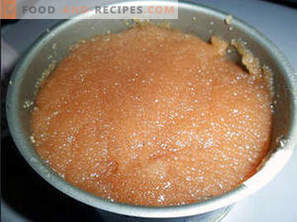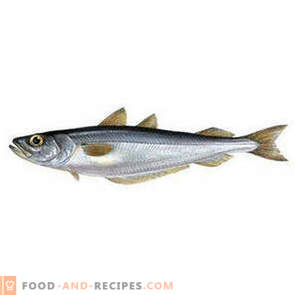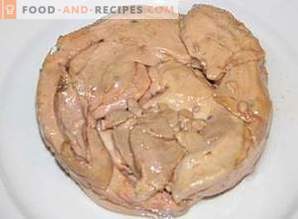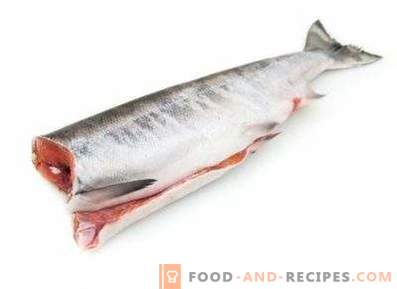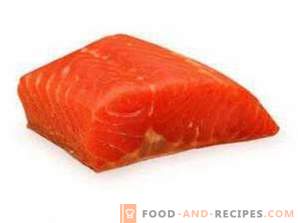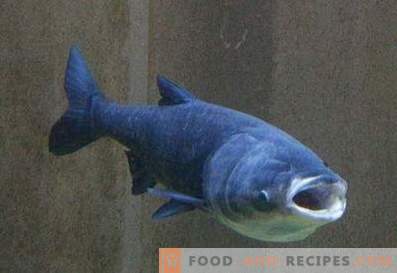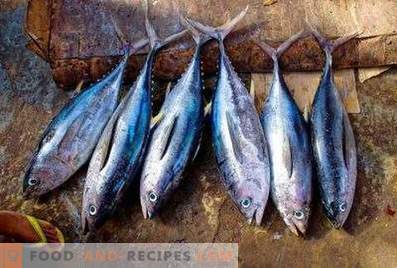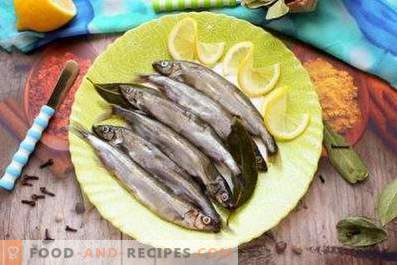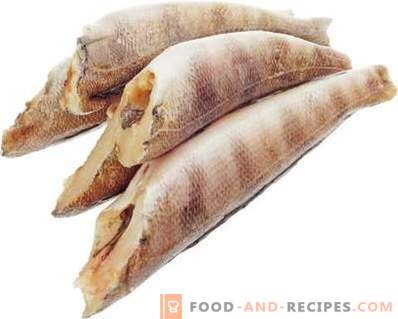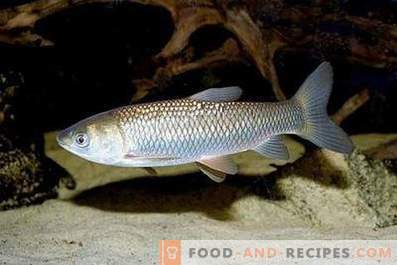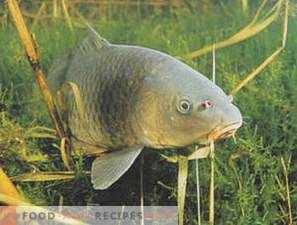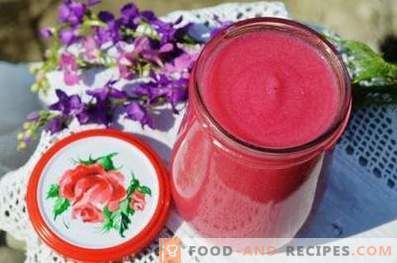
Cod is a ray-wading fish belonging to the cod family. Representatives of this genus have a spindle-shaped elongated body with two anal and three dorsal fins, a large pointed head with a protruding upper jaw and a fleshy tendril on the chin. The back of the cod is covered with many brownish spots, and its color can vary from yellowish-olive to brown. The belly of the fish is white, sometimes with a yellowish tinge.
The genus of cod includes several species: Atlantic (subspecies - Atlantic, Kildin and Baltic cod), Greenland and Pacific. The largest representatives of these species reach 200 cm in length and gain weight up to 96 kg. However, in a commercial catch, individuals are not more than 70 cm long and weighing up to 10 kg.
Cod is of major economic importance in most countries of the world. This fish is valued for its delicious dietary meat and fatty liver. Cod goes on sale in chilled, frozen, salted-dried, smoked form or in the form of canned food. In cooking, this fish is used to make soups, hot and cold snacks, main courses.
Vitamins in cod and its nutritional value
Nutritional value cod (100 g):
- 15, 781 g of proteins;
- 0, 588 g of fat;
- 82, 091 g of water;
- 1, 211 g of ash;
- 39, 516 mg of cholesterol;
- 0, 168 g of omega-3 fats;
- 0, 009 g of omega-6 fats.
Vitamins in cod (per 100 g):
- 9,966 μg of retinol equivalent (A);
- 1, 557 mcg of cobalamin (B12);
- 0, 165 mg of pyridoxine (B6);
- 0, 877 mg tocopherol equivalent (E);
- 0, 088 mg of thiamine (B1);
- 9, 951 μg of biotin (H);
- 11, 277 µg of folate (B9);
- 0, 967 mg of ascorbic acid (C);
- 5, 791 mg of niacin equivalent (PP);
- 0, 067 mg of riboflavin (B2).
Cod calories
Caloric content of 100 g of raw cod is 68, 908 kcal. After culinary and heat treatment, the energy value of this product increases significantly. In particular, the calorie content of cooked cod reaches:
- canned - 104, 597 kcal;
- salted and dried - 289, 446 kcal;
- smoked - 114, 984 kcal;
- fried - 122, 818 kcal;
- baked - 89, 736 kcal;
- boiled - 78, 644 kcal;
- stew - 102, 002 kcal.
Useful items in cod
Macroelements in cod (in 100 g):
- 339, 414 mg of potassium;
- 199, 672 mg of sulfur;
- 24, 681 mg of calcium;
- 209, 814 mg of phosphorus;
- 29, 618 mg of magnesium;
- 164, 773 mg of chlorine;
- 54, 488 mg of sodium.
Trace elements in cod (in 100 g):
- 0, 488 mg of iron;
- 149, 883 μg of copper;
- 699, 707 μg of fluorine;
- 134, 709 mcg of iodine;
- 3, 871 mcg of molybdenum;
- 54, 992 mcg of chromium;
- 29, 414 μg of cobalt;
- 8,974 μg of nickel;
- 1, 017 mg of zinc;
- 0, 077 mg of manganese.
Useful properties of cod
- Cod is a rich source of protein compounds with an optimal amino acid structure. Nutritionists advise people involved in sports to eat this fish at least 2 times a week.
- Cod contains a whole complex of minerals and vitamins that ensure the normal functioning of the organs and systems of the human body. Regular consumption of dishes from this fish helps to replenish the reserves of nutrients in the body, reduce the risk of seasonal avitaminosis.
- A cod carcass contains not more than 0.6% fat. That is why people seeking to get rid of excess weight can safely include this fish in their diet menu.
- Vitamins of group B, with which this product is rich, activate the metabolic processes in the body.
- Substances contained in cod contribute to a decrease in blood pressure. People with hypertension are recommended to eat up to 200-300 g of this fish weekly.
- Regular consumption of food from this product helps to strengthen the body's immune forces, reduce the risk of infection with infectious diseases.
- In 2007, employees of the Norwegian Institute of Health conducted a study that established a direct relationship between cod food consumption and slowing down the processes of decreasing cognitive activity of the brain in old age.
- The compounds found in the fillets of this fish help the body recover from intellectual and physical exertion, prolonged illness.
- Cobalamin and iron, present in cod, normalize the work of the blood-forming system and regulate the processes associated with blood clotting. People suffering from anemia are advised to include dishes from this product in the menu at least 6 times a month.
- Vitamin E and other antioxidants that are ingested by eating cod, slow down the aging process of tissues, protect cells from free radicals, and reduce the risk of cancer.
- Sodium, magnesium and potassium contained in cod strengthen the heart muscle and vessel walls, thereby reducing the risk of developing heart disease.
- Substances found by scientists in the composition of this product, contribute to the excretion of excess cholesterol, thereby reducing the likelihood of the formation of cholesterol deposits in blood vessels and the development of atherosclerosis.
- Cod contains a complex of vitamins and other beneficial compounds that normalize the functioning of the nervous system. With increased irritability, causeless and frequent mood changes, neurosis, insomnia and depressive states, you should eat at least 300 g of this fish during the week.
- Dishes from this product help reduce the harmful effects of stress on the functioning of internal organs and systems.
- Phosphorus, calcium and other substances present in this product stimulate the growth of hair and nails, strengthen bone and cartilage tissues, prevent the development of rickets, osteochondrosis and other bone diseases.
- With regular consumption of cod, the condition and appearance of the skin improves markedly.
Contraindications and harm to cod
- The main contraindication to the consumption of cod is individual intolerance. People suffering from allergies to other seafood should also be careful when including this fish in their diet.
- Nutritionists recommend that persons who have been diagnosed with gallbladder and kidney disease, hypotension, and hypercalcemia, significantly limit cod consumption.
- An excess of vitamin D in the body is considered a contraindication to the consumption of this product.
- Abuse of cod can trigger diarrhea or vomiting. The daily dose of dishes from this fish for adults should not exceed 200 g.
- Cod is very often infected with parasites. In order to avoid parasitic infestation, it is necessary to subject this product to thorough cooking and heat treatment.
